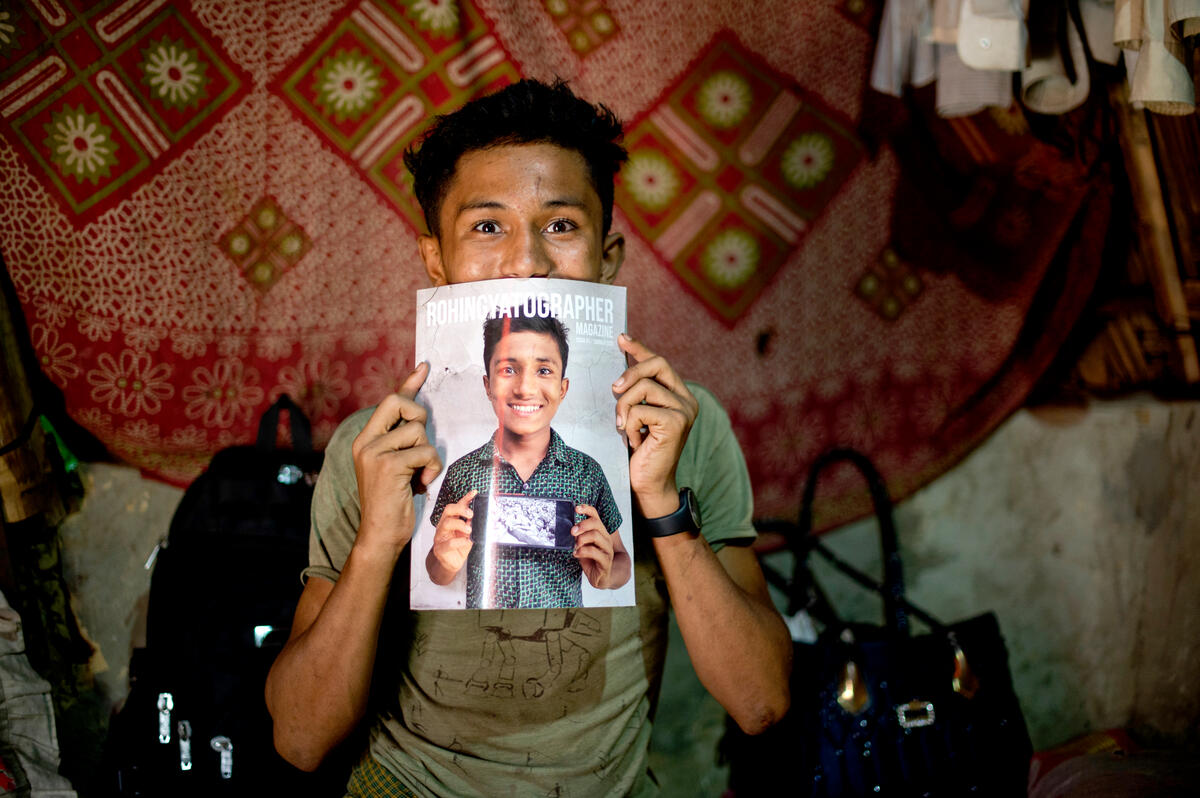Rohingya refugee women stitch new lives in Bangladesh
In a packed room in Nayapara refugee camp there is fierce concentration amid the whirring of sewing machines.
Forty young women are hard at work, producing items that make up some of the contents of female hygiene kits, distributed by UNHCR twice a year to refugee women of reproductive age, including underwear and washable cloth sanitary napkins.
Not only do they produce items that they will use themselves, but they have also learnt new tailoring skills. Most have also managed to save enough money to buy their own sewing machines and work from home once they have graduated from the project.
“This project gives them jobs and training,” said Laila Arjuman Banu, community mobilization associate with Technical Assistance Inc. (TAI), which runs the programme with support from UNHCR, the UN Refugee Agency.
More than 688,000 refugees have fled to Bangladesh since violence erupted in the Maungdaw area of northern Rakhine state six months ago and reported that troops and crowds attacked and killed residents and set fire to their villages.
Since it started in 2011 more than 600 women have benefited from the programme, which gives participants three months’ training, followed by three months’ on-the-job experience.
“This work allows me to earn money and take care of myself.”
“I had no idea how to sew before,” said Anwara Begum, 30, a single mother who fled violence in Myanmar in the early 1990s. “My husband had left me and I was bringing up a young baby girl on my own. She’s now five years old. This project has helped a lot.
“I’ve saved enough money to buy my own machine and now I can take private orders. The best thing is, I can learn a skill and be paid, and then earn money myself afterwards.”
During work experience, depending on their output, women can earn up to 6,000 taka (US$72), enough to help them to set them up in business.
“This work allows me to earn money and take care of myself,” said 19-year-old Nasima Aktar, who was born in Nayapara refugee camp.
“I feel really good and proud to be working here. I’ve bought my own machine and I’m taking orders from home. I’ve also trained my youngster sister to sew. My dream, if I can save enough money, is to open my own shop.”.
Around the world, UNHCR works with partners like TAI to help women improve their economic situation through decent work and regain control of their lives. Economic empowerment is one of the agency’s five commitments to refugee and displaced women designed to boost gender equality.
“They are learning on their own and helping others to learn.”
The Bangladesh programme was originally developed to work with women who fled persecution in Myanmar in the 1990s. With a huge new influx of Rohingya refugees since last August, there is greater demand for the hygiene products, and it is set to expand.
Work is under way on an extension to the building, to provide a larger work space so that more women can be hired. A similar programme in Kutupalong refugee camp is also being expanded. The plan is for nearly 1,200 young women to be trained this year.
Some of the trained women also work at a tailoring shop in Nayapara refugee camp run by TAI, producing custom-made clothing for sale.
Laila Arjuman Banu from TAI says that income generation and skills training are important but the programme has also helped women gain confidence and take more control of their lives.
“Before, there were no opportunities like this for women,” she said. “Now, they don’t have to spend all the time in their homes, but they can get the skills training and earn an income.”
She continued: “It’s very important. It helps to raise their status in the community. They feel proud about themselves. They are learning on their own and also helping others to learn.”









